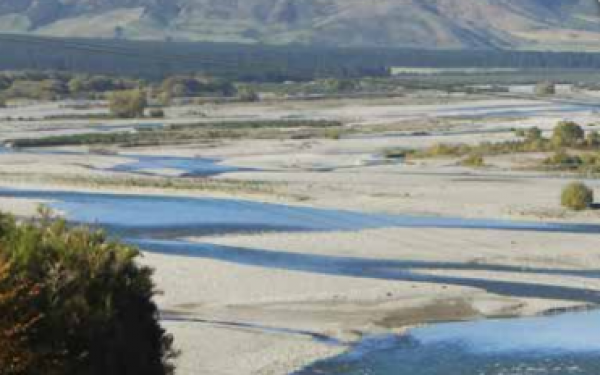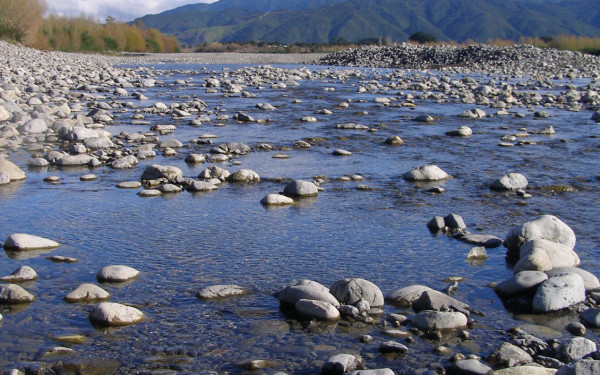To keep our waterways clean and free of pest species, we work closely with Ministry for Primary Industries, Fish and Game, DOC and Horizons Regional Council.
Freshwater pest species
Originally, the "Check, Clean Dry" method was created to prevent the spread of didymo, or "rock snot" from waterway to waterway. Didymo is not currently present in waterways in the Wellington region, but can spread via a single drop of water, so it is crucial that we keep our waterways free of it.
Using the Check, Clean, Dry method can also help to control the spread of other known pest species such as hornwort, parrot's feather and koi carp. Freshwater pest species are damaging to our freshwater ecosystems because they:
- Block waterways
- Reduce native plant and fish populations
- Prevent recreational activities
- Are extremely difficult, sometimes impossible, to eradicate once established.
Koi carp pose the highest ecological risk of all pest fish in New Zealand, and they are here in our region.
Aquatic pest plants like parrot's feather are spread between waterways by human activity and lead to sediment build up that can cause flooding.
These pests can only be spread from waterway to waterway by human activity. Once they are established, they can be impossible to remove, so it is our responsibility to make sure we prevent this from happening. If you don't want to clean your gear between every waterway, every time, you will need to limit your activity to one waterway.
The Check, Clean, Dry method
The Check, Clean Dry method is the most effective way of preventing freshwater pests from spreading between waterways and is recommended across New Zealand by the Ministry for Primary Industries (MPI). The North Island method includes:
- Check – Remove any visible matter, including any plant material, mud, or clams. Drain all river or lake water.
-
Clean – Blast your gear and craft that has been in contact with river or lake water with tap water, not into a stormwater system or drain (onto grass).
For absorbent materials, use one of these treatments (refer to manufacturer’s instructions if needed):
-
-
Soak in hot tap water (50 to 55°C) for at least 5 minutes, or,
-
Soak in 5% bleach solution (5L mix = 250ml bleach in 4.75L water) for an hour, or,
-
Freeze till solid (overnight), or,
-
Soak in salt solution (5L mix = 500g salt in 5L warm water) for 4 hours.
-
For a full list of Biosecurity New Zealand-approved treatments, including options for situations where none of the above is suitable, refer to: Treatment options for gear made of absorbent material.
- Dry – to be sure.
- Gear: Allow gear to dry to touch, inside and out, then leave it to dry for at least 48 hours (2 days) before using again.
- Watercraft: Dry areas inside the watercraft where water has pooled, for example with an old towel, and then leave the craft to dry for at least 48 hours (two days). The hull of a watercraft will dry when towed.
These new 'Check Clean Dry' steps will also help stop the spread of other freshwater pest species.
Using the Check, Clean, Dry method for sporting events
There is a guide on the MPI website for event organisers, and groups who deal with cleaning large amounts of gear. This is to help ensure that you, and the participants in your event, don't inadvertently spread freshwater pest species.
Check out the guidelines for sporting event organisers.
Greater Wellington can provide Check, Clean, Dry advocates to events at no cost. If you are organising an event in the Wellington region and would like our advocates to attend, please email us at ccd@gw.govt.nz.
Freshwater pests and water quality
The only reason that a freshwater pest species will appear in a new waterway is if it has been brought there by human activity. However, factors like high nutrient levels can affect the growth rate of pests once they are introduced.
The quality of a waterway cannot cause these species to appear on their own, but it will be significantly affected by their presence.
Learn how to spot our freshwater pests and weeds in this quick guide.
Find out more about our freshwater pests and weeds.
Contacts
If you have questions about the Check, Clean, Dry method, email info@mpi.govt.nz
To order Check, Clean, Dry brochures and guides, email brand@mpi.govt.nz.
Get in touch
- Phone:
- 0800496734
- Email:
- info@gw.govt.nz


